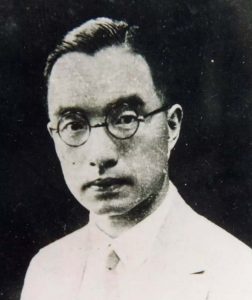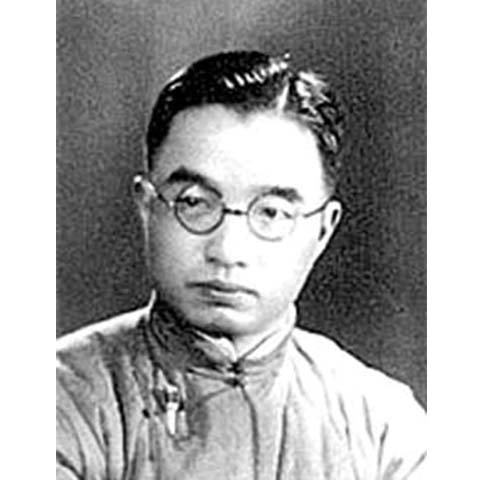
Zhu Zi Qing (朱自清) was a well-known prose writer of modern China. His famous works, “Moonlight at Lotus Pond (荷塘月色)” and “Image of the Back (背影),” were included in the Chinese literature textbook used by the Chinese schools in the Philippines in the 1960s.
One day in June 1948, Wu Han (吳晗), a famous scholar, came to Zhu and told him excitedly, “I am looking for you to affix your signature.”
Zhu was sick of serious gastric disease and did not have money for treatment at the time. Because of the skyrocketed prices, the little salary he was receiving was good only for three sacks of flour, which were not even enough to feed his 12 family members. Where can he get money for his treatment?
He looked at Wu and asked, “To sign for what?”
Wu unfolded a big sheet of paper. Its heading, in big characters, reads, “Protest the United States’ Policy of Assisting Japan; Refuse Flour Assistance from the US.”
Giving the paper just a glance, Zhu held a pen with his trembling hand, ready to sign. Realizing Zhu was too impoverished, Wu leaned over him and said, “Maybe for this time you…”
Zhu pushed Wu’s hand away, affixed his signature on the manifesto properly and said, “I would rather die in poverty and sickness, but never accept this kind of insult done out!”
After Wu left, Zhu wrote in his diary: “For this act, I will lose six million Fabi (法幣, the worthless super inflationary currency during the late reign of Chinese national government). This means a month of great adversity to the family. But I decided to sign because we are against the United States assistance to Japan. I should set an example by myself.”
Due to poverty and sickness, Zhu passed away in Beijing on Aug. 12 that year.
On his deathbed, he exhorted his wife, “Keep in mind, I had signed the document refusing to receive flour assisted by the US. Our family should not buy US flour distributed by Kuomintang (the ruling Chinese Nationalist Party)!”
That was Zhu Zi Qing. A noble man of letters, a staunch nationalist with backbone and integrity.
